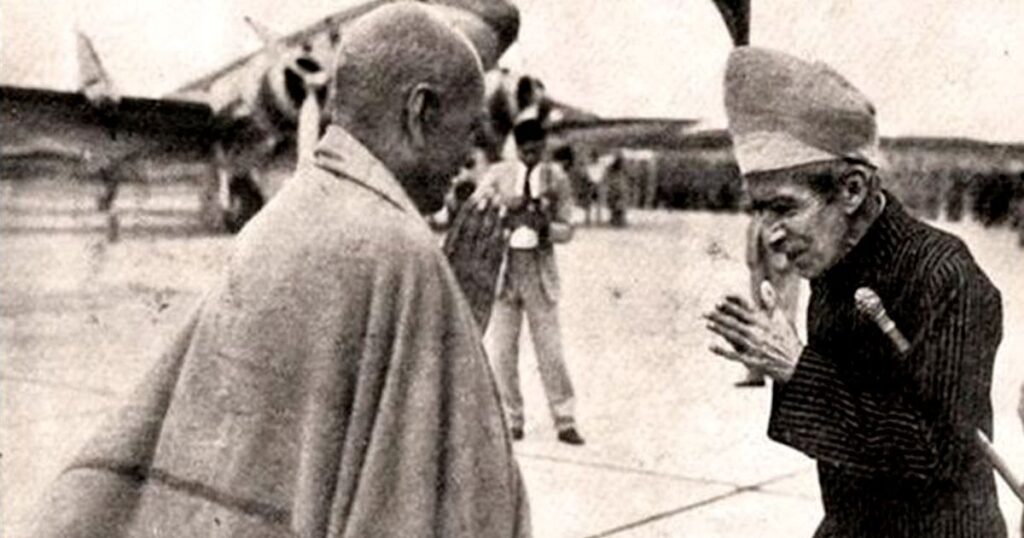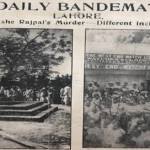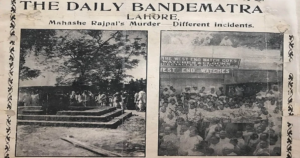
It was the month of December and the year was 1950. Sardar Patel had died. Then he was the Home Minister of India. It is not that the mention of him has ended after his death. Rather, his mention kept increasing day by day. We can also say that he is the only Home Minister of the country whose mention never died. These days the mention of Patel ji has increased again. And when Patel’s name comes up, the mention of Nehru automatically gets added to it. And this is no coincidence. Nor is it because both Nehru and Patel were contemporaries. And also the perpetrators of the most important things that happened in the initial years of the independent country. These days, once again the debate regarding Article 370 is heated, from the Parliament to the Supreme Court of the country, from the lawyers’ chambers to the paan shops, there is mention of Slave Kashmir i.e. POK and the imposition and removal of Section 370..but amidst this mention The name of an Army Chief is almost missing due to whose actions India lost the Kashmir it had won…
We often hear that if Patel had become the Prime Minister of India, the country would have progressed much more. Some important problems with which we are facing today would have been solved only then. Like Kashmir. That with the same power with which he merged Hyderabad and Junagadh into India, the Kashmir problem would also have been solved once and for all. Prime Minister Modi himself has said in the Lok Sabha-
But it is said that history is written in the language of ifs and buts. Therefore there are no easy answers to these questions. But one thing can be done. The past can be rewinded. Like watching a movie backwards. Like live review in cricket, the possibility of getting answers to ‘why’ arises in the story of ifs and buts.
India became independent in the year 1947, but the country got its first Indian Army Chief about one and a half years later, at the beginning of India’s independence, the command of the army was in the hands of a British officer, General Sir Francis Robert Roy Butcher. That time was very important. , because the country was grappling with delicate issues like partition, Kashmir problem and Hyderabad merger. In such a situation, the importance of the Army Chief increases considerably. But, if any Indian Army Chief had done whatever Butcher did while in office, he would probably have been known in history as a traitor.

If entire Kashmir became an international dispute instead of it being India’s, then apart from Nehru, Butcher was also largely responsible for it. If Butcher’s intentions were good, India would not only have given a befitting reply to Pakistan’s intrusion in Kashmir, but would also not have allowed Pakistan to illegally occupy a part of Kashmir. Butcher was not even in favor of taking military action to merge the princely state of Hyderabad with India. It would be good for the country’s first Deputy Prime Minister, Sardar Vallabhbhai Patel, who completely rejected Butcher’s childish opinion and by taking military action on Hyderabad, made it an integral part of India.
The story can also be understood in this way: Actually, Butcher took over the command of Commander in Chief of India i.e. Army Chief on January 1, 1948. The reason behind giving such an important responsibility to a British officer was that he was aware of Indian military operations. Besides, he could also bridge the gap between British and Indian military personnel. Because after independence, a large number of foreign officers and soldiers were included in the Indian Army. Secondly, the biggest thing was that at that time the government felt that no Indian would be able to shoulder such a big responsibility, because the British had never appointed any Indian to such a big position. All these things went in Butcher’s favor and he remained Commander-in-Chief for about a year. But, the serious damage he caused to India during this period is still being borne by India…
In fact, Butcher was a senior army officer even before assuming the post of Commander in Chief. Just a year before independence, he became the General Officer Commanding-in-Chief of the Eastern Command. When the British were transferring power to independent India, Butcher wanted the public to be kept away from the ceremony due to security reasons. Jawaharlal Nehru politely told him that India was now ruled by the people and it was not possible to keep the same people away from such a historic event. He canceled the general’s order.
Butcher was hurt by how his views were rejected, but his biggest failure came on 22 October 1947, when Pakistani tribal fighters infiltrated with weapons with the intention of capturing Kashmir. At that time Butcher was handling the responsibility of Kashmir. The then Prime Minister Jawaharlal Nehru had regular correspondence with him. Since he was the senior most military officer in Kashmir at that time, Nehru gave maximum importance to his opinion. The Indian Army fought bravely against the Pakistani infiltrators and was being overwhelmed by them. But Butcher gave Nehru the exact opposite report. Nehru fell into the trap of a foreigner and believed his words.
In fact, about a month and six days had passed since the Pakistani army entered Kashmir in tribal dress and the war was going on. During this time, Butcher wrote a letter to Nehru on 28 November 1948. In this he told that Indian soldiers in Kashmir are very tired. In this situation, no major military action against Pakistan is possible. Butcher mentioned two weaknesses of the army in particular to Nehru. He said, ‘Junior officers lack basic training, they do not have the experience of dealing with such situations. Also, soldiers of other ranks are very tired and lack enthusiasm. At this time, soldiers are in dire need of training and leave, so that their skills can increase and they can freshen up.
It is said that Nehru’s intention at that time was to deal sternly with Pakistan; in his reply letter he expressed concern over reports that Pakistan was planning air strikes on Indian targets within a few weeks. Besides, to strengthen its position, Pakistan was also rapidly constructing roads in the affected areas, so that war material could be delivered quickly. Nehru said that we cannot adopt a defensive stance against Pakistan. If Pakistan continues aggressive operations, there is every possibility of war with it. But, Butcher clearly believed that in the current situation the Indian Army cannot compete with Pakistan. He again wrote to Nehru that we cannot launch a military operation to stop every road construction by Pakistan, but I can suggest a political solution to solve this issue. Butcher suggested the solution, that was to raise the Kashmir problem in the international forum. That means taking it to the United Nations. After the intervention of the United Nations, there was a ceasefire in Jammu and Kashmir, which is part of India, on January 1, 1949. In the same year, Nehru government also provided special status to the state of Jammu and Kashmir i.e. Article 370 was imposed.
Although Butcher had tried to shock India before, in the case of the merger of the princely state of Hyderabad, when it was decided that the Nizam of Hyderabad was not willing to merge with India and wanted to go with Pakistan, on 12 September 1948 A cabinet meeting was held in which the then Deputy Prime Minister Sardar Vallabhbhai Patel proposed military action in Hyderabad. Butcher was also present in that meeting and he immediately stood up and expressed his objection.
Butcher said, ‘Gentlemen, you have taken a difficult decision in the case of Hyderabad. In such a situation, it is my duty to warn you people. Right now we are fighting with Pakistan in Kashmir also and I don’t know how much time will it take for that fight to end. If we take military action in Hyderabad also, it will be difficult for our army to handle two operations simultaneously. Therefore, as Commander-in-Chief, I suggest that you do not initiate military action in Hyderabad.

Butcher also raised questions on India’s military capability and warned that if India launched any operation in Hyderabad, Pakistan could also launch air strikes on Mumbai and Ahmedabad. But Sardar Patel blew away all Butcher’s worries. He told Butcher that if Britain could face World War II, why not Mumbai and Ahmedabad? On the issue of military capability, Patel instead asked Butcher, ‘Do you think, the Nizam of Hyderabad will be able to stand against our soldiers even for a week?’
Butcher made his last move by threatening to resign if his advice was not heeded. Due to this maneuver of Butcher, there was silence in the meeting hall. Prime Minister Nehru also looked distracted and helpless, but there was no confusion in Sardar Patel’s mind. He clearly told Butcher that if you want to resign, do so willingly, but the military operation to merge Hyderabad with India will start tomorrow. India started its operation as planned and in less than a week defeated the Razakars and annexed Hyderabad to India.
Butcher held the post of Commander-in-Chief for a little more than a year, during which he did not do anything noteworthy except breaking the morale of the Indian Army and leaders. Butcher’s dark chapter ended on 15 January 1949, when he was replaced by General KM Cariappa as the first Indian Army Chief of Independent India. But the question remained that whatever Butcher did, on whose instructions was Jinnah done? Britain or was he taking revenge from India in his mind?
Tweets by RajeevBlogger








More Stories
Pandit Chamupati’s book which became a date in history
When Ram Prasad Bismil became a revolutionary after reading Satyarth Prakash
Kartar Singh Sarabha whom the British considered the most dangerous revolutionary